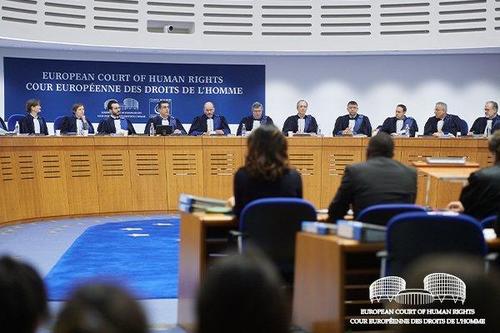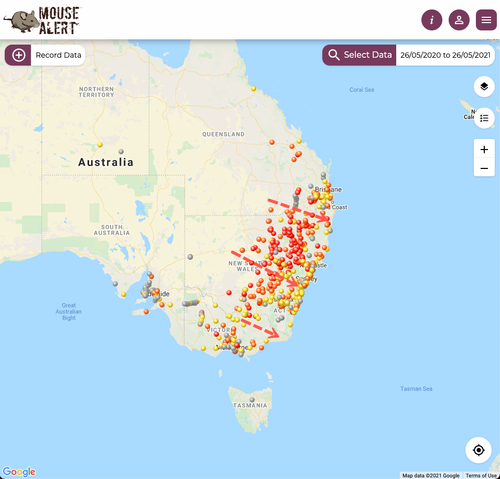Authored by Glenn Greenwald vis Substack, (emphasis ours)
This judicial ruling about the raging debates over group-based benefits vividly highlights the social, political and culture divisions driving U.S. politics…
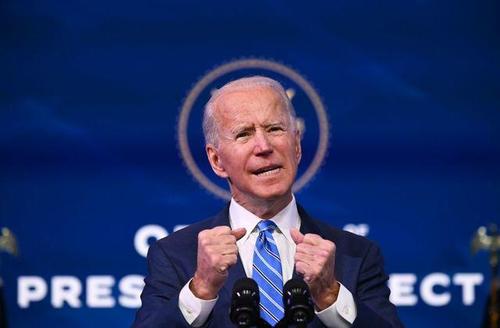
A federal appellate court on Thursday invalidated the racial and gender preferences in President Biden’s $1.9 trillion American Rescue Plan Act as unconstitutional. The Cincinnati-based Sixth Circuit of Appeals ruled that provisions of that law, designed to grant preferences to minority-owned small-restaurant owners for COVID relief, violate the 14th Amendment’s guarantee of equal protection under the law:
No state shall make or enforce any law which shall abridge the privileges or immunities of citizens of the United States; nor shall any state deprive any person of life, liberty, or property, without due process of law; nor deny to any person within its jurisdiction the equal protection of the laws.
The specific provision struck down was part of the law’s $29 billion Restaurant Revitalization Fund grant program for small, privately owned restaurants struggling to meet payroll and rent due to the COVID crisis. The law, which was passed almost entirely by a party-line vote in March, grants priority status to restaurants that have 51% ownership or more composed of specific racial and ethnic groups as well as women. By effectively relegating struggling businesses owned by white males or ethnicities and nationalities excluded from a priority designation “to the back of the line,” the COVID relief program, ruled the court by a 2-1 decision, ran afoul of core constitutional guarantees.
The ruling is not only constitutionally significant in its own right but also vividly reflective of broader societal debates over how race and gender categories ought to be treated when set next to class. The parties to this case as well as the judges involved in the ruling themselves highlight the pervasive conflicts created by race and gender preferences.
The lawsuit was brought by Jake’s Bar and Grill, a restaurant jointly owned by Antonio Vitolo, who is white, and his wife, who is Hispanic. If Vitolo’s wife owned more than 50% of the restaurant, then Jake’s Bar and Grill would be eligible to receive priority treatment for a grant, since her ethnicity qualifies as “socially and economically disadvantaged” under the law. But because she only owns 50% — her white husband owns the other half — the restaurant’s application cannot be considered until the Small Business Administration (SBA) first processes all applications from restaurants entitled to priority status based on race and gender, as well as veteran status.
The Vitolos’ restaurant, said the court, “has struggled during the pandemic—it closed on weekdays and offered to-go orders on weekends. It lost workers and a considerable amount in sales.” For that reason, they filed their application for a grant under the COVID relief bill on the first day the SBA accepted applications, which was May 1. But under the law, their application could not be considered until the 21-day period reserved for priority businesses elapsed. If all of the allocated grant money were exhausted during that designated 21-day period — as the Vitolos feared — then Jake’s Bar and Grill and other non-minority-owned struggling businesses would receive no relief.
The Vitolos filed a lawsuit against the SBA administrator asking that the race-and-gender-based scheme be enjoined and that, instead, their application be processed without regard to their race. Though the district court judge rejected the request on a variety of procedural and substantive grounds, the three-judge appellate panel yesterday ruled in their favor.
The court ordered the government to cease “using these unconstitutional criteria when processing Antonio Vitolo’s application.” The majority expressed the crux of its ruling simply: “This case is about whether the government can allocate limited coronavirus relief funds based on the race and sex of the applicants. We hold that it cannot.”
The appellate judge who wrote the majority opinion is Amul Thapar. He made history when, in 2008, he became the first-ever South Asian judge appointed to the U.S. federal bench after being selected by then-President George W. Bush. The son of immigrants from India, whose father owns a heating and air-conditioning supply business in Toledo, Ohio, Thapar was elevated to the Sixth Circuit in 2017 after first being considered by President Trump for the Supreme Court vacancy ultimately filled by Justice Neil Gorsuch.
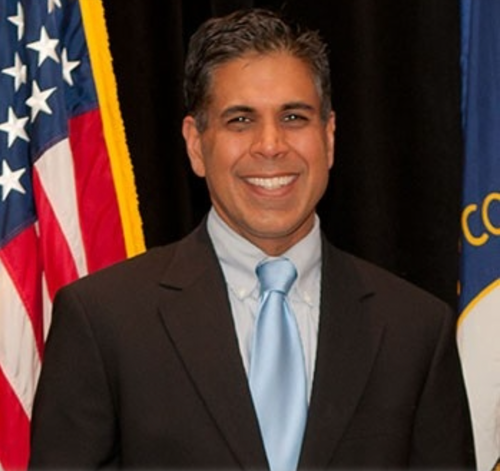
Sixth Circuit Court of Appeals Judge Amul Thapar authored a ruling invalidating the race and gender preferences in President Biden’s COVID relief bill, May 27, 2021 (photo: Court of Appeals)
Thapar’s ruling contains multiple indirect references to his own ethnicity and race. Among the components of the racial preference scheme that clearly offended his constitutional sensibilities was the seemingly arbitrary classification calculus — what he called a “scattershot approach” — used to determine which groups do and do not qualify as “socially and economically disadvantaged” under SBA regulations. As Judge Thapar put it:
[I]ndividuals who trace their ancestry to Pakistan and India qualify for special treatment. But those from Afghanistan, Iran, and Iraq do not. Those from China, Japan, and Hong Kong all qualify. But those from Tunisia, Libya, and Morocco do not.
The racial divisions and ethnic categories imposed on the citizenry for determining which restaurants are eligible for COVID relief are, in his view, as irrational as they are discriminatory. One hypothetical invoked by Judge Thapar illustrated the precise racial discrimination which, in his view, the Fourteenth Amendment’s Equal Protection guarantee was created to avoid:
Imagine two childhood friends—one Indian, one Afghan. Both own restaurants, and both have suffered devastating losses during the pandemic. If both apply to the Restaurant Revitalization Fund, the Indian applicant will presumptively receive priority consideration over his Afghan friend. Why? Because of his ethnic heritage. It is indeed “a sordid business” to divide “us up by race.” League of United Latin Am. Citizens v. Perry, 548 U.S. 399, 511 (2006) (opinion of Roberts, C.J.). And the government’s attempt to do so here violates the Constitution.
Thapar was referencing the fact that under SBA regulations, a person is deemed “socially and economically disadvantaged” if they are “black, Hispanic, or Native American.” They are deemed presumptively disadvantaged as “Asian Pacific Americans” only “if they have origins from Burma, Thailand, Malaysia, Indonesia, Singapore, Brunei, Japan, China (including Hong Kong), Taiwan, Laos, Cambodia (Kampuchea), Vietnam, Korea, the Philippines, U.S. Trust Territory of the Pacific Islands (Republic of Palau), Republic of the Marshall Islands, Federated States of Micronesia, the Commonwealth of the Northern Mariana Islands, Guam, Samoa, Macao, Fiji, Tonga, Kiribati, Tuvalu, or Nauru.” Meanwhile, for a person to qualify as “Subcontinent Asian Americans,” they “must have origins from India, Pakistan, Bangladesh, Sri Lanka, Bhutan, the Maldives Islands, or Nepal.”
If a person is in one or more of those groups, they are deemed presumptively disadvantaged — and thus entitled to priority grant allocation — unless “someone comes forward” with “credible evidence to the contrary.” But if someone is not in one of those groups — not just if they are white or male but also from any of the countries excluded from the preferred designations — then they can qualify only if they “prove they have experienced racial or ethnic discrimination or cultural bias by a preponderance of the evidence,” a process filled with lengthy delay and red tape.
If they fail to demonstrate this to the satisfaction of the SBA, then they must wait, and perhaps never receive relief. As Judge Thapar put it, “the schedule of racial preferences detailed in the government’s regulation—preferences for Pakistanis but not Afghans; Japanese but not Iraqis; Hispanics but not Middle Easterners—is not supported by any record evidence at all.” The law, in his words, is designed for “presumptively sending men from non-favored racial groups (including whites, some Asians, and most Middle Easterners) to the back of the line.”
Thapar, who was joined in the decision by Reagan-appointed Judge Alan Norris, recognized that racial and gender preferences are sometimes constitutionally permissible under Supreme Court jurisprudence, but only if “the government has a compelling interest” in giving some racial and ethnic groups preferential treatment, and only if the preferences are “narrowly tailored,” whereby “the government must show ‘serious, good faith consideration of workable race-neutral alternatives.’”
The court ruled the preference scheme in the COVID relief law constitutionally insufficient for multiple reasons. Among them was the lack of a specific nexus between the discrimination suffered by the favored groups and prior government action. Equally significant, said the court, was the existence of numerous race-neutral alternatives to the problems identified by the government that they are trying to fix: namely, that minority-and-female owned businesses have had greater difficulty obtaining credit or prior COVID relief funds. “The government could,” said the court, “grant priority consideration to all business owners who were unable to obtain needed capital or credit during the pandemic,” rather than only those who are from preferred racial groups. Or the state “could simply grant priority consideration to all small business owners who have not yet received coronavirus relief funds” (emphasis added).
But instead of a targeted effort to assist all American small-restaurant owners who have suffered equally from the pandemic, the law arbitrarily grants priority to some based on racial or gender identity that has no necessary relationship to economic suffering. The law, for instance, favors white women over Middle Eastern men. And it grants priority to ethnic groups that are among the highest earners in the U.S. — including Indian-Americans and specific groups of Asian-Americans — over lower-earning groups including white men and Middle Easterners.
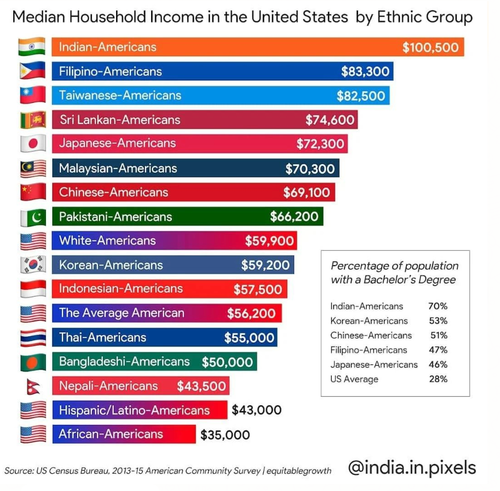
Group-based income levels in the from 2013-15 U.S. Census Bureau data. Data from subsequent years adheres to these trends.
The court explained this irrational approach in the context of striking down the law’s gender preference:
The priority system is designed to fast-track applicants hardest hit by the pandemic. Yet under the Act, all women-owned restaurants are prioritized—even if they are not “economically disadvantaged.” Pub. L. No. 117-2, § 5003(c)(3)(A). So whether a given restaurant did better or worse than a male-owned restaurant next door is of no matter—as long as the restaurant is at least 51% women owned and otherwise meets the statutory criteria, it receives priority status. Because the government made no effort to tailor its priority system, we cannot find that the sex-based distinction is “substantially related” to the objective of helping restaurants disproportionately affected by the pandemic.
In sum, divvying up Americans by race and gender and determining who, on that basis, is entitled to benefits and who is not, is something that is constitutionally permissible only in the narrowest and most extreme circumstances. In the view of the court, the race and gender preferences embedded in the COVID relief bill for small-restaurant owners did not come anywhere near that requisite justification. “As today’s case shows once again,” concluded the court, quoting a prior Supreme Court ruling, the ‘way to stop discrimination on the basis of race is to stop discriminating on the basis of race.’”
The dissenting judge, Bernice Donald, is an African-American woman who was first appointed to the federal bench in 1995 by President Bill Clinton, then elevated to the Sixth Circuit in 2011 by President Barack Obama. Her dissenting opinion thoroughly captures the broader political arguments in favor of providing race-and-gender-based preferences.
“It took nearly 200 years for the Supreme Court to firmly establish that our Constitution permits the government to use race-based classifications to remediate past discrimination,” she wrote, but “only seven days for the majority to undermine that longstanding and enduring principle.” Echoing the argument made by those who advocated for such legislative preferences in the first place, Judge Donald insisted that the purportedly race-blind majority opinion ignores systemic realities about how the United States functions and the damages it imposes on specific groups of people:
The majority’s conclusion that Plaintiffs are entitled to injunctive relief requires us to make several assumptions. The majority’s reasoning suggests we live in a world in which centuries of intentional discrimination and oppression of racial minorities have been eradicated. The majority’s reasoning suggests we live in a world in which the COVID-19 pandemic did not exacerbate the disparities enabled by those centuries of discrimination. The majority’s reasoning suggests that we live in a world in which Congress passed the Restaurant Revitalization Fund (“RRF”) not to aid the nation’s economic recovery, but to arbitrarily provide special treatment to racial minorities and women.
She also argued that the evidence is overwhelming that the racial and gender preferences in the law correspond to those most discriminated against by COVID struggles. Citing the legislative process and the judicial hearing, she said “experts offered evidence showing that minority-owned businesses were more vulnerable to economic distress than businesses owned by white entrepreneurs—they were more likely to operate in retail, accommodation, food services, and personal care services industries, which were hardest hit by government shut-down orders and a decrease in foot traffic.” Beyond that, she said, minority-owned businesses were more likely to be in areas with higher rates of COVID-19 infections.”
Judge Donald seemed to concede that no scheme of racial or gender preferences will perfectly match the realities of the population. Some people who do not suffer as much will receive race-based benefits, while others who suffer more will be denied them. But such schemes, in her view, are nonetheless constitutionally justified given the “broad-based emergency legislation designed to fight business fallout that is uniquely and directly tied to the COVID-19 pandemic.” Given the one-time emergency nature of this grant, she said, “we must avoid hurried judicial decision-making under such circumstances,” and should grant extra deference to the legislature regarding its assessments of how best to help a struggling population.
Judge Donald’s core argument is that racial and gender preferences, even if imperfectly targeted, are justified to cure widespread racial and gender inequalities.
“Entrepreneurs of color have had specific difficulty in accessing business capital,” she said, while “banks require more documentation from minority applicants but approve loans less often or for lower amounts” and “minority entrepreneurs had lower familial and household incomes, decreasing access to private capital.”
But what of the solutions proposed by the majority, which would target people based on need rather than race and gender? Judge Donald conceded that “in normal times, there may be some force to the majority’s position,” but given the need to “act fast,” some imperfections are inevitable. The Congress, she said, is far better positioned than the Court to assess what is best for the nation during an emergency.”
The undercurrents and conflicts driving this case are highly illustrative of broader cultural debates. Indeed, the case captures the core question driving much politics in the U.S. and the West: is it remedial, or bigoted, to continue to divide people based on race and gender and determine their official rights, benefits and preferences based on their membership in demographic groups rather than the realities of their individual lives?
Specific states, such as Oregon, have explicitly set aside millions of dollars in COVID relief funds available only to black residents. Such race-based benefits across the nation have prompted similar litigation and have resulted in many of these funds being frozen pending their outcome (a Mexican-American resident of Oregon who sued the state over the state’s black-only relief fund had her case rejected).
This latest appellate ruling — at least when it comes to COVID relief for small-restaurant owners in the Sixth Circuit (parts of Kentucky, Michigan, Ohio and Tennessee) — resolves that question in favor of individual treatment and against group-based preferences. But that specific decision is likely to be appealed to the full court and perhaps the Supreme Court and, either way, this specific race and gender debate will continue to rage.
